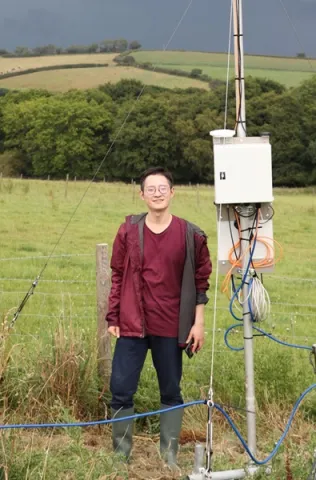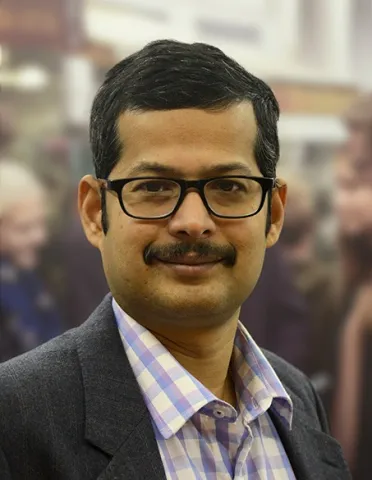Project overview
Grasslands, which cover approximately 40% of the UK’s land area, are essential for food production, carbon sequestration, and maintaining ecosystem health. Primarily used for grazing livestock, they support key sectors of the UK economy, including the meat and dairy industries. In 2021, grasslands supported the production of 2.5 million tonnes of beef and 14 billion litres of milk (DEFRA, 2022). Additionally, grasslands store about 10% of the UK's total carbon stocks (UK Climate Change Committee, 2020), helping mitigate climate change. However, increasing climate extremes – such as the 2018 drought and the 2022 heatwave – are straining grassland systems, impacting feed availability, livestock productivity, and carbon storage.
Despite the critical role of grasslands, management practices remain insufficiently informed by the latest data and modelling tools, limiting the ability to adapt to climate stress. The Unified FLUXes (UFLUX) framework, a hybrid model combining physics-informed ecological processes with machine learning, has been globally validated for assessing the resilience of grasslands under climate extremes (Zhu et al., 2024a; 2024b), but it is not yet widely available or implemented for practical land management decisions. This project aims to translate the established UFLUX research into a user-friendly tool with game theory that provides actionable insights to grassland managers across the UK.
Despite the critical role of grasslands, management practices remain insufficiently informed by the latest data and modelling tools, limiting the ability to adapt to climate stress. The Unified FLUXes (UFLUX) framework, a hybrid model combining physics-informed ecological processes with machine learning, has been globally validated for assessing the resilience of grasslands under climate extremes (Zhu et al., 2024a; 2024b), but it is not yet widely available or implemented for practical land management decisions. This project aims to translate the established UFLUX research into a user-friendly tool with game theory that provides actionable insights to grassland managers across the UK.


